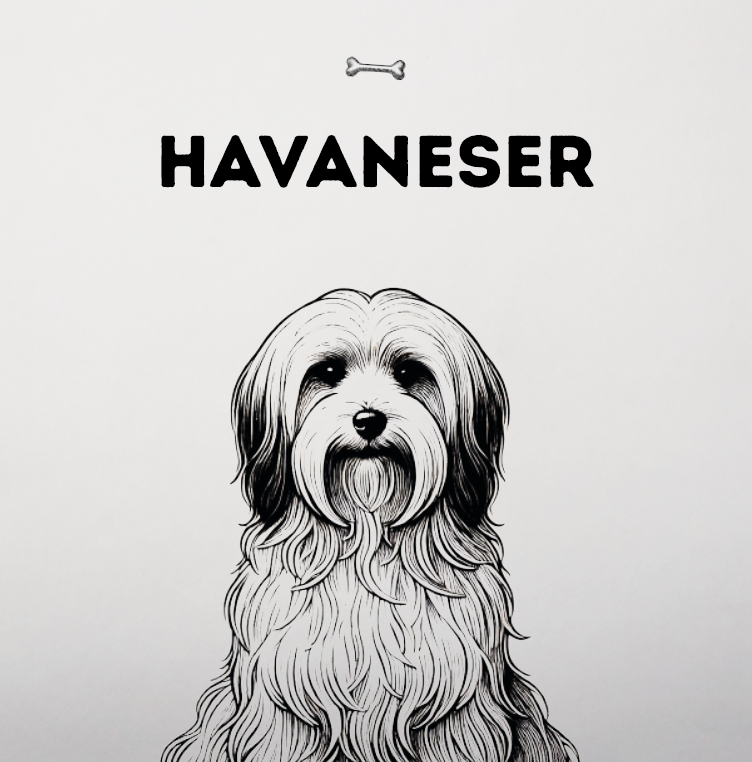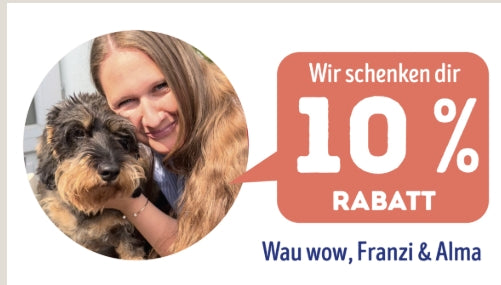The Havanese, originally from Cuba, is a small but extremely lively dog breed that quickly wins the heart of any dog lover with its friendly nature and unique coat. With its playful nature and devotion to its family, the Havanese is not only a loyal companion but also a true charmer.
Origin & History
The Havanese originated in Cuba, where it was kept as a companion and lap dog for the upper class. Due to its small size and friendly nature, it soon became a very popular dog, found as a loyal companion in many households. The name "Havanese" comes from Cuba's capital, Havana, where this breed became particularly well-known.
The Havanese's origins go back a long way, and it's believed that the dog was introduced to Cuba by Spanish traders who arrived by ship in the 16th century. The Havanese was particularly prized not only for its sociability but also for its exceptionally beautiful coat, perfect for cuddling.
Character & Nature
The Havanese is a cheerful, active, and extremely sociable dog that makes an excellent family member. His love of people is evident in his affectionate nature; he is a true "cuddly dog." He is also extremely playful and loves spending time with his family. The Havanese has a friendly and outgoing personality and generally gets along well with other dogs and other animals.
What sets the Havanese apart is its high level of intelligence and willingness to learn. It's a clever dog who quickly learns new commands and tricks. At the same time, it's also a charmer who knows how to pamper its owners with its charisma and brighten their day.
Care & Health
The Havanese is known for its beautiful coat, consisting of long, soft hair that requires regular grooming. A Havanese therefore requires regular grooming to prevent matting and support healthy skin. Despite its magnificent coat, the Havanese sheds relatively little, making it a suitable choice for people with mild allergies.
It's important to brush the coat regularly to prevent matting. The Havanese's ears should also be checked regularly, as their long ears are prone to infections.
In terms of health, the Havanese is a robust and long-lived dog breed with a life expectancy of 12 to 15 years. However, as with many small breeds, Havanese can also suffer from patellar luxation (dislocation of the kneecap), which is why regular veterinary checkups are important.
Education & Attitude
The Havanese is relatively easy to train due to its high intelligence and friendly nature. It responds well to positive reinforcement and is a very willing student when it comes to learning new commands. Like all dogs, the Havanese should be socialized from an early age to ensure it gets along well with other dogs and other animals and remains calm in different situations.
As a small dog, the Havanese is suitable for living in both an apartment and a house with a garden. Because they are very affectionate, they shouldn't be left alone for long periods of time, as they may otherwise suffer from separation anxiety. Those who spend plenty of time with them and provide them with plenty of exercise will be rewarded with a loyal and happy dog.
The Havanese is a loving and playful dog who impresses not only with his charm, but also with his loyalty and intelligence. Anyone looking for a dog that fits perfectly into their life as both a loyal companion and a family member will find a Havanese the perfect choice. With regular care and loving training, the Havanese will become a loyal, happy dog who makes every day a special experience.




